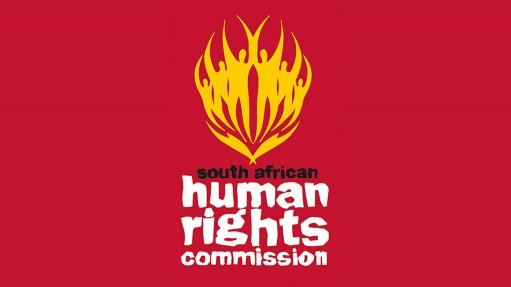
It was an evening of heated back and forths between KwaZulu-Natal police commissioner Lieutenant-General Nhlanhla Mkhwanazi and evidence leaders at the South African Human Rights Commission (SAHRC) as he was grilled about the lack of police action in Phoenix, Durban, during the July unrest.
Much of his testimony on Wednesday afternoon centred on illegal barricades, most contentiously, one that was situated mere metres from the Phoenix police station.
The barricade in question has been a point of contention with many witnesses testifying before the commission they suffered the most violence in this area.
Mkhwanazi said it was difficult for the police to take immediate action against the barricades in Phoenix because officers only had live ammunition.
"The only thing police had was live ammunition and they could not use that against people. It was a limitation."
However, commissioner Andre Gaum questioned why the police went to Umhlanga to make sure people moved barricades, and yet Phoenix police did not do the same.
Mkhwanazi said it would have been difficult to prosecute anyone loitering near barricades because the person who erected it could not be identified.
He said: "When we feel as an officer the law is broken, you suspect one of them erected the barricade, you take all five and put them in jail and take them to court. In court, the prosecutor asks if you know any one of them who did it, and then you don't know and they are released. In such a situation you rather negotiate with those people."
Mkhwanazi added barricades in Phoenix were different from those in Umhlanga and other parts of Durban. He said it was more of a stop and search while in Phoenix, "it was an entire highway there were barricades".
He said Phoenix police officers observed a lot of crime taking place, and as a result a number of suspects were arrested, adding a number of items were also recovered.
"It cannot be true that the Phoenix police didn't do anything because anyone arrested there was processed at that police station."
Mkhwanazi said he instructed officers to first secure their police stations.
"The first instruction I sent out to police was to protect their police station."
He added the size of Phoenix compared to officers employed was disproportionate.
"We did not have the numbers on the ground. But the blame is on police with people saying that we must be on the thousands of streets in Durban."
Mkhwanazi said there were bigger drivers beyond the police when it came to the unrest, adding poverty was a major factor the commission had to ventilate.
He said: "These people who died in July, a lot of them died because they went out there to loot, they fell and crowds trampled them and they died. Maybe a person was driven by hunger. I don't know. Until this commission looks at the causes of this violence and the behaviour of the public, we might find answers. It doesn't give us joy to arrest people."
He added the police did not do anything about the Phoenix barricade.
"We only removed it after [the unrest]."
Mkhwanazi was also asked if any officers were held accountable for failing to remove the barricades in Phoenix.
"There is no evidence that police did not prevent the barricades. There is no evidence that police stood by and allowed barricades to go up."
The commission continues on Thursday.